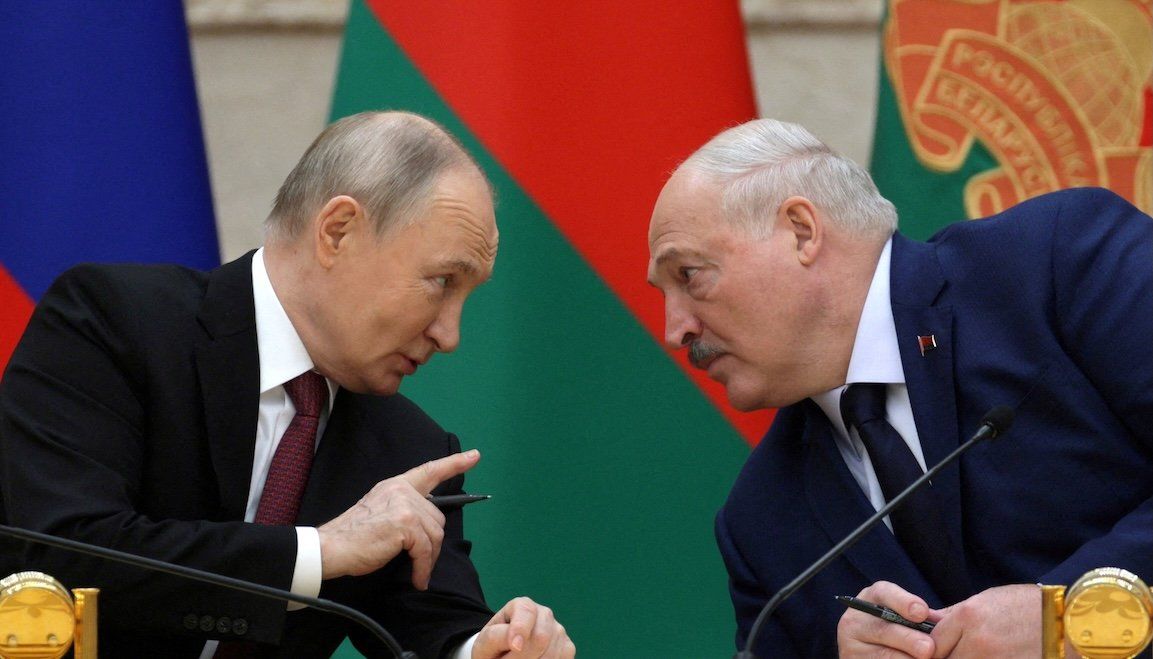Viewpoint: With Putin’s protection, is Lukashenko’s reelection in Belarus a foregone conclusion?
Ahead of Sunday’s election in Belarus, there is little doubt that Alexander Lukashenko, Europe’s longest-serving leader, will win a new term in office. After the protests that erupted following the 2020 elections, threatening his grip on power for the first time, a government crackdown supported by Russia has eliminated any opposition to the president.
Yet a new term for the 70-year-old leader, who has complained about health problems, will likely raise questions about potential succession planning in his next term. Regardless of what comes next, Russian President Vladimir Putin, who considers neighboring Belarus a critical part of his country’s sphere of influence, will make sure its interests are protected.
We sat down with Eurasia Group expert Alex Brideau to learn more about the upcoming election.
What do we know about Lukashenko’s true level of support?
Lukashenko has been in power for more than 30 years, ever since he won Belarus’ first and only genuine democratic presidential election, held in 1994 a few years after the collapse of the Soviet Union. Since then, it has been hard to tell just how genuine Lukashenko’s public support is. He has routinely won reelection in votes that were neither free nor fair. Many of his challengers have been arrested for standing against him.
Lukashenko’s reelection in 2020, though, demonstrated that whatever popularity he previously enjoyed had eroded and that his hold on power looked shaky. Public outcry over manipulated results that showed another landslide victory against a credible opposition candidate, Svetlana Tikhanovskaya, prompted major demonstrations that threatened Lukashenko’s hold on power for months. Major repression by the security forces and support from Russia allowed him to regain control of the situation.
Is there any chance of a repeat of the 2020 results or unrest?
This election is going to look very different from the anger of five years ago. Belarus’ security services continue to repress the formal opposition. Parties have been banned and their leaders have been arrested or forced to flee the country. Attempts to protest the results will be met with arrests and force, most likely. The regime may hope that holding the election in January instead of August, as happened in 2020, might limit the appetite for demonstrations. As for the election itself, there is little mystery as to who will win. Lukashenko won’t have a serious challenger, instead facing candidates who are considered to be loyal opposition.
What matters with this vote?
Given his age and past statements suggesting he is concerned about his health, there will be at least some question as to whether Lukashenko might consider a succession plan during his new term. Lukashenko has talked about stepping aside before, only to stay firmly in charge. And it’s doubtful that a succession plan would truly lead to him giving up his control. Lukashenko’s control of the All-Belarusian People’s Assembly gives him a way to exert power if he decided he wanted to transfer the presidency to a loyalist.
How do outside powers view the election?
Russia will recognize the election results, allowing it to maintain its influence over Belarus. Lukashenko isn’t exactly liked in Moscow. His leadership has been considered erratic, and he has thumbed his nose at Moscow’s interests at times when it either helped him at home or when he tried (and failed) to cozy up to the West. But he has become even more dependent on Russian economic and military support since 2020, as Western governments imposed heavier sanctions and even restricted air travel from Belarus. Putin’s policies have treated Belarus much the same way he has approached Ukraine, seeing it as an integral part of Russia’s sphere of influence. Russia has used a bilateral “Union State” treaty from 1999 to boost its role in the country. If there were a crisis stemming from the election, Moscow could very well intervene to ensure that its control was intact.
How about the West?
The US and EU members, meanwhile, will not consider the election legitimate. But so far they aren’t saying all that much. Having already imposed a large number of sanctions against the economy and Belarusian leaders both before and after the 2020 crackdown, there is only so much they are able to do to affect Lukashenko’s control.
Edited by Jonathan House, Senior Editor of Eurasia Group.
